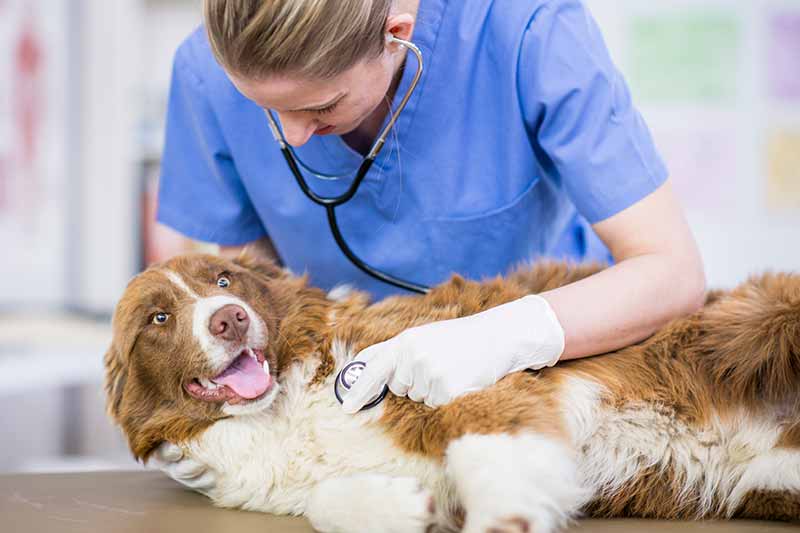How to Select the Right Veterinarian Greensburg for Your Family pet's Requirements
How to Select the Right Veterinarian Greensburg for Your Family pet's Requirements
Blog Article
Professional Tips for Family Pet Nutrition From a Veterinarian
Understanding the nutritional requirements of animals is essential for their general health and longevity. Veterinarians suggest a balanced diet that deals with specific aspects such as task, age, and breed degree. With the multitude of pet dog food choices readily available, pet owners frequently locate themselves browsing a landscape rife with false information and myths. As we discover necessary suggestions from veterinary specialists, it ends up being apparent that proper nourishment is not merely regarding what is fed however entails a deeper understanding of each family pet's distinct requirements. What vital understandings could transform your approach to animal nutrition?
Understanding Nutritional Requirements
Understanding the dietary demands of animals is essential to guaranteeing their overall wellness and wellness. Simply like people, pets need a well balanced diet plan that provides vital nutrients, including healthy proteins, fats, carbohydrates, vitamins, and minerals. These nutrients play crucial functions in different physical features, such as power production, immune reaction, and cells repair work.
They are made up of amino acids, some of which are vital and should be acquired from food. Carbohydrates serve as a main energy source and can support digestive health when they include fiber.
Nutrients are necessary for metabolic procedures and preserving overall wellness. Each animal may have distinct demands based upon variables such as age, type, activity level, and health and wellness condition. It is crucial to speak with a vet to determine the specific dietary requirements customized to your pet's individual demands, guaranteeing they get optimal nourishment throughout their life phases. Proper understanding and attention to these nutritional parts can dramatically add to an animal's long life and lifestyle.

Choosing the Right Food
Choosing the appropriate food for pets is a crucial element of meeting their dietary demands. It is necessary to take into consideration factors such as age, type, health and wellness, and size standing when picking a pet dog food. Kittens and young puppies require formulations that support development and development, while grown-up pets need well balanced diet plans that preserve their wellness. Elderly pet dogs may gain from foods made to deal with age-related issues, such as joint wellness or weight monitoring.
When examining animal food options, seek products that satisfy the Association of American Feed Control Officials (AAFCO) standards, which guarantee that the food offers well balanced and total nourishment. Active ingredients need to be top notch, with genuine meat as the key resource of protein. Prevent foods with excessive fillers, man-made ingredients, or spin-offs, as these can diminish the overall dietary worth.
Consulting with a veterinarian can give tailored recommendations based upon your family pet's certain demands. Additionally, transitioning in between foods need to be done progressively to avoid stomach distress. By taking these actions, family pet owners can make sure that they are supplying their hairy buddies with the very best feasible nutrition for a healthy and delighted life.
Typical Misconceptions Concerning Pet Food
Exposing false impressions surrounding pet food is important for making certain ideal nutrition for our hairy buddies. One prevalent myth is that all grain-free diet regimens are premium for family pets. In truth, grains can give important nutrients and are not naturally damaging. A balanced diet plan can consist of grains, supplied they are not triggering any type of intolerances or allergic reactions.

Furthermore, several pet proprietors think that "premium" or "all-natural" tags assure greater high quality. Nonetheless, these terms are usually unregulated and do not always show exceptional nutritional worth. It is important to scrutinize ingredient listings and dietary profiles instead.
Unique Considerations for Different Types
When it comes to pet nourishment, unique factors to consider need to be considered for various types, as each breed can have unique nutritional demands and sensitivities. As an example, huge types such as Terrific Danes and Saint Bernards are vulnerable to musculoskeletal concerns and may take advantage of diet plans created to sustain joint health and wellness, typically including components like glucosamine and omega fats. Conversely, tiny types like Chihuahuas might need greater calorie thickness to satisfy their power levels, demanding formulas that are rich in nutrients yet lower wholesale.
In addition, specific breeds might be predisposed to specific health and wellness problems, such as food allergies or level of sensitivities. Breeds like Labrador Retrievers might deal with weight problems, needing cautious section control and a well balanced diet to maintain a healthy weight. On the other hand, types such as Dachshunds might be extra susceptible to spinal problems, triggering a requirement for diet regimens that advertise spine health and wellness and weight administration.
Ultimately, understanding these breed-specific nutritional needs is crucial for family pet owners. Consulting with a vet can help in picking one of the most appropriate diet tailored to a private family pet's breed, health, and age standing, ensuring optimal nourishment and health.
Importance of Normal Vet Exams
Recognizing the one-of-a-kind nutritional requirements of different breeds is only one element of liable pet dog ownership; routine vet check-ups play a crucial duty in maintaining overall health. These examinations are vital for very early detection of health and wellness concerns, ensuring that any potential problems are resolved prior to they become severe. Normal check outs enable vets to check your pet dog's weight, oral wellness, and essential indicators, which are critical indicators of overall health.
Furthermore, routine examinations make it possible for veterinarians to supply customized Learn More dietary suggestions based upon your animal's individual health status - Animal Hospital Greensburg. As pets age, their nutritional needs might alter, and changes might be needed to avoid obesity or nutrient shortages. Precautionary care, including inoculations and parasite control, is additionally a fundamental part of these visits, guarding your pet dog from different diseases
In enhancement to checkups, these visits use an exceptional opportunity for pet dog proprietors to discuss behavioral modifications or issues about their pet dog's consuming practices. By focusing on normal veterinary exams, animal owners can ensure a much longer, much healthier life for their furry companions, eventually enhancing their high quality of life.
Conclusion
To conclude, making sure ideal animal nutrition needs a comprehensive understanding of specific nutritional needs, proper food selection, and understanding of widespread myths. Special considerations for numerous types must be accounted for, and regular veterinary check-ups play an important role in checking wellness and dietary modifications. check out here Following AAFCO requirements and seeking advice from with vets before making dietary changes will improve the wellness of family pets, eventually contributing to their durability and high quality of life.
With the wide variety of family pet food alternatives available, pet owners typically discover themselves navigating a landscape raging with misinformation and myths. Each pet dog may have unique needs based on elements such as age, breed, task level, and health standing. It is important to think about elements such as age, wellness, breed, and dimension status when picking a family pet food. Senior pet dogs might profit from foods created to address age-related concerns, such as joint health and wellness or weight monitoring.
Comprehending the unique nutritional needs of various breeds is only one aspect of accountable animal possession; routine veterinary check-ups play an essential function in maintaining general health and wellness.
Report this page